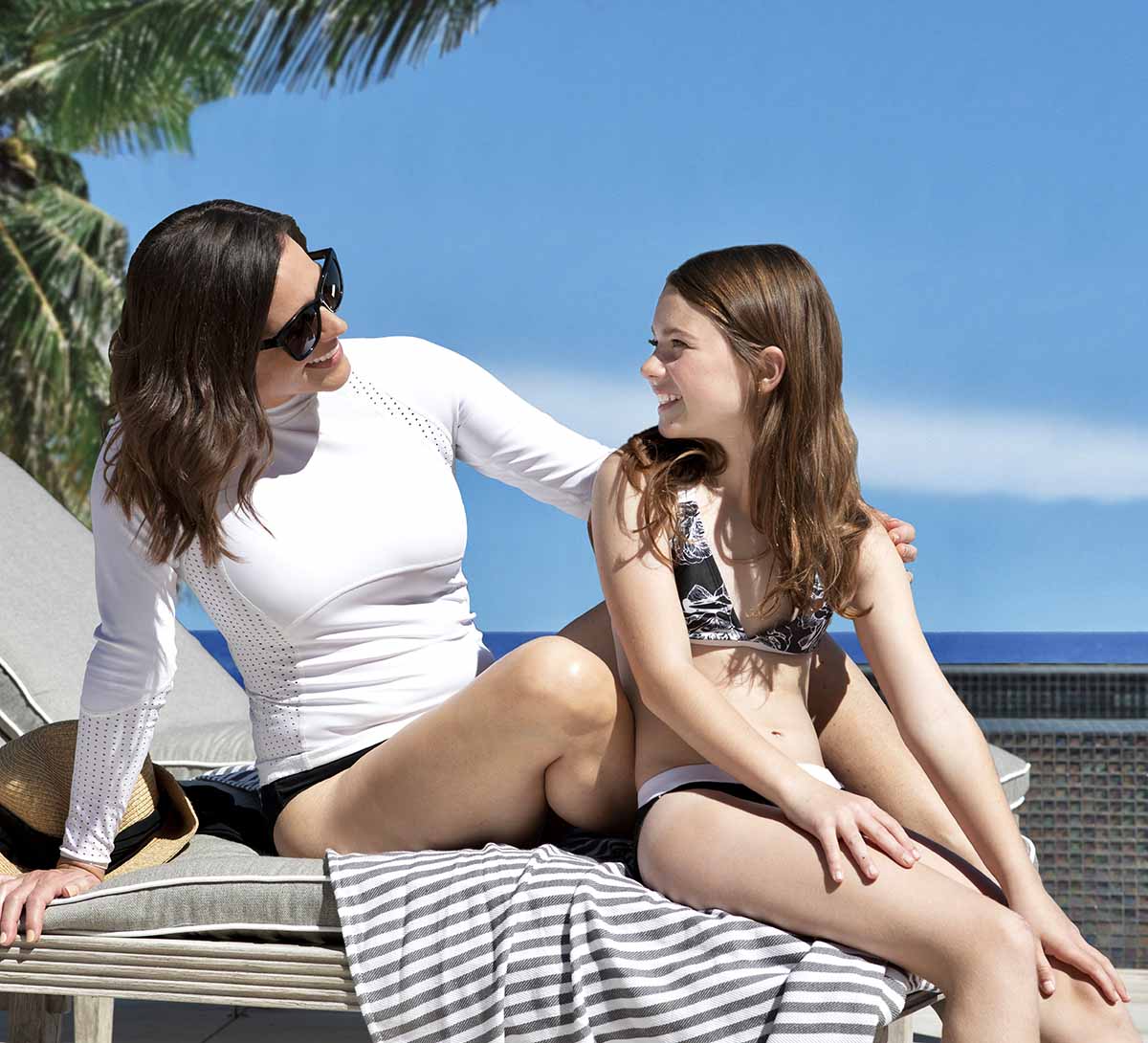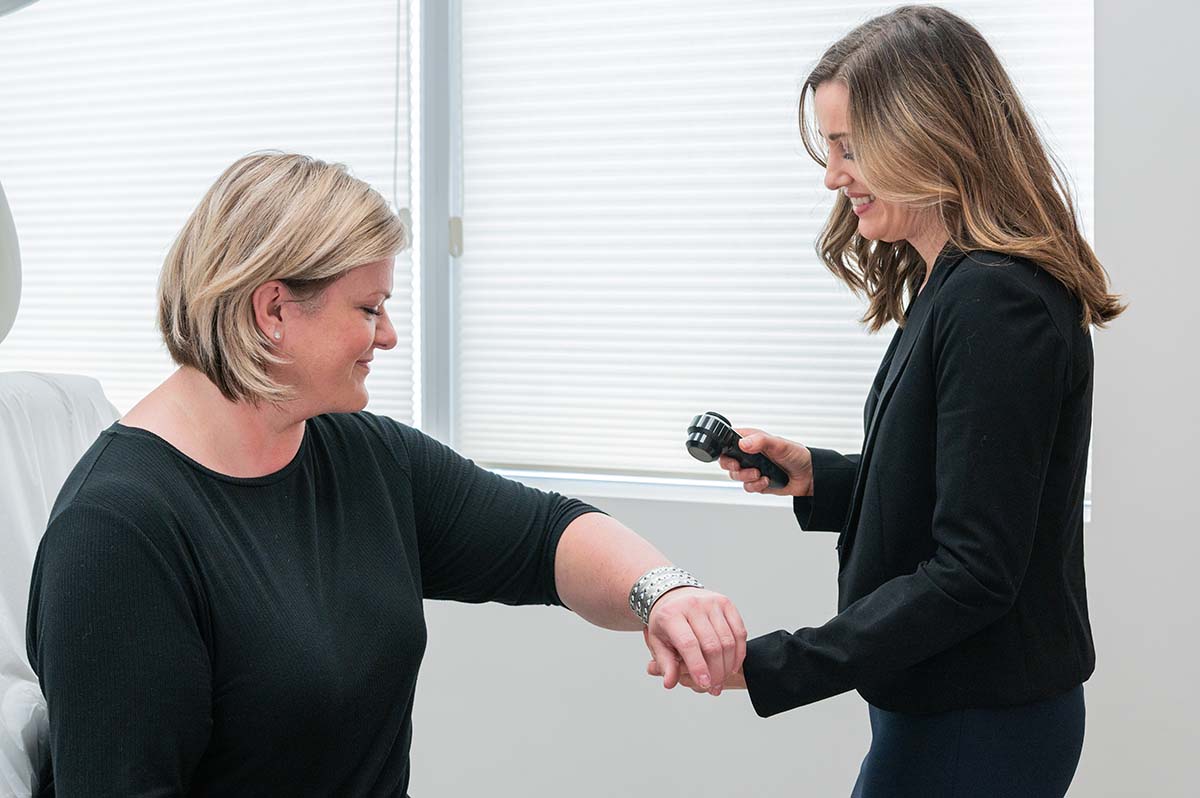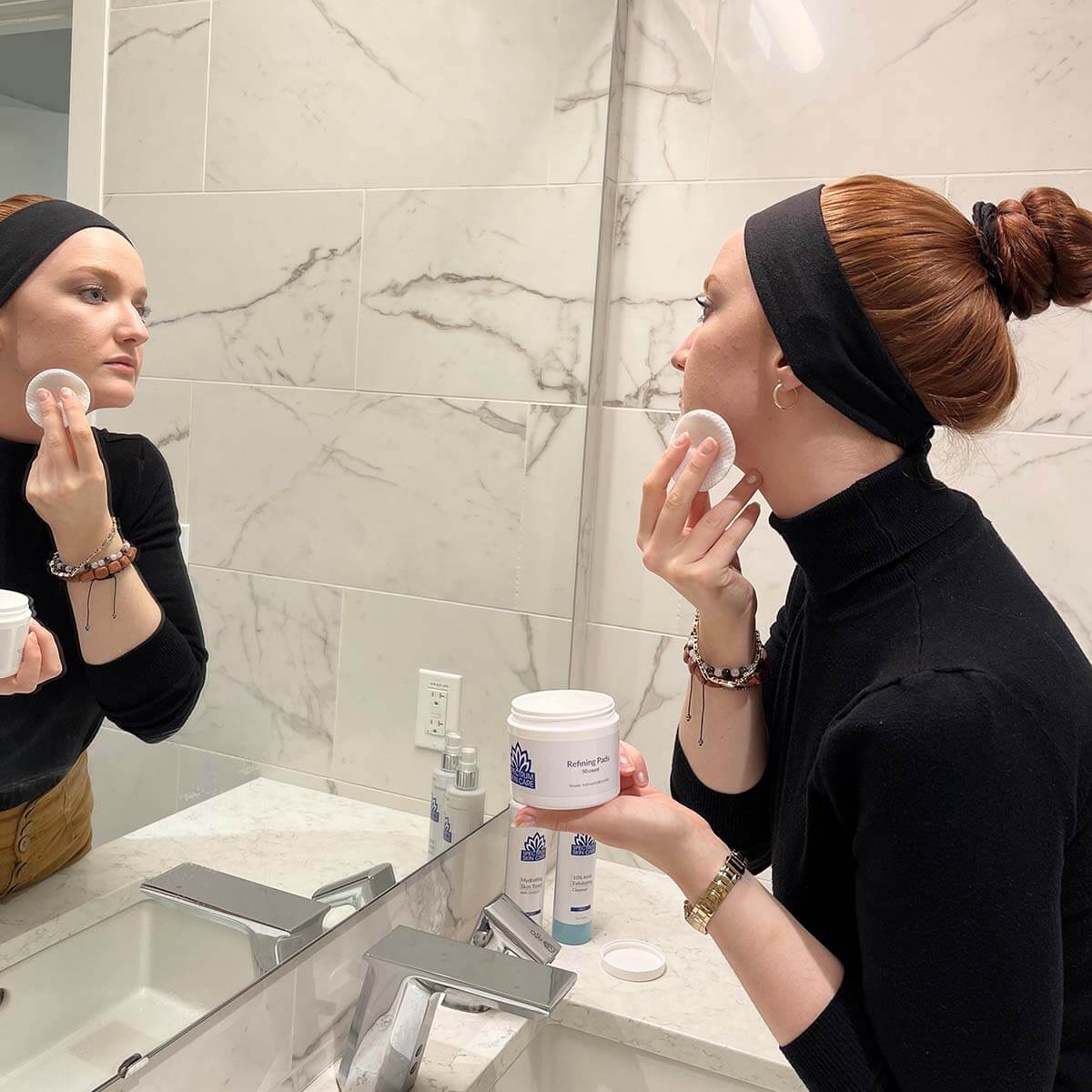
We know the sun causes skin cancer and skin aging, so how do we enjoy the outdoors safely?

First, cover up. Cover up with clothing, hats, and sunglasses. Any lightweight, tightly woven clothing will do, but try sun protective clothing when the sun’s rays are intense, such as at the beach or golfing. For swimming, UV protective rash guards are better protection than sunscreen alone, and many people find them easier and more comfortable. Reduce your exposure by sitting in the shade and heading inside during the hours of most intense sun between 10 am and 2 pm. A hat is particularly important for people with finer or sparser hair, as the scalp is very susceptible to skin cancer.
Wear sunscreen every day. Yes! Every. Day. Make sure to apply to all areas of the skin that could be exposed, apply generously and evenly, reapply after 90-120 minutes (about 2 hours) of exposure, as well as after swimming or sweating, and use only excellent quality sunscreen. Don’t forget your ears and the back of your neck! Many people don’t know that sun damage is not just about sunburn but comes from accumulation of exposure to ultraviolet (UV) radiation. Variable amounts of UV radiation come through clouds and windows and is present sunup to sundown. This damage can accumulate even without a visible tan or burn but will gradually show up in the form of freckles, wrinkles, and dull texture.
How do you choose a sunscreen? The best sunscreen is the one you will wear. The way it feels, how it smells, ease of application, tinted or un-tinted can all make the difference in whether you will wear it. I am a big believer that you should really love your sunscreen, because it will motivate you to wear it. But to be most effective, sunscreen should have an SPF between 30 and 50, and have at least 10% zinc oxide. Zinc oxide protects not just against sunburn, but sun damage as well, because it is the best for blocking the longer UVA wavelengths that go deeper into the skin and damage collagen and the DNA in skin cells. For exercising and swimming, be sure to choose a water-resistant sunscreen.
What if you have darker skin, do you still need sunscreen? YES. All skin of all colors acquires damage from the sun, though it will look a little different in different skin types, and all skin types can get skin cancer. Deep brown skin has an SPF of about 15, which means it takes 15 times longer to burn. But over a lifetime of sun exposure, wrinkles, brown spots, hyperpigmentation, and dull texture will all accumulate.
When choosing a sunscreen there are many choices available on the market, and you may need to try a few to find ones you like. You may also need more than one kind for various occasions and locations. If you want some advice on what type of sunscreen to choose, ask one of our team members at Spectrum Dermatology of Seattle! We are passionate about sunscreen and always happy to help.











